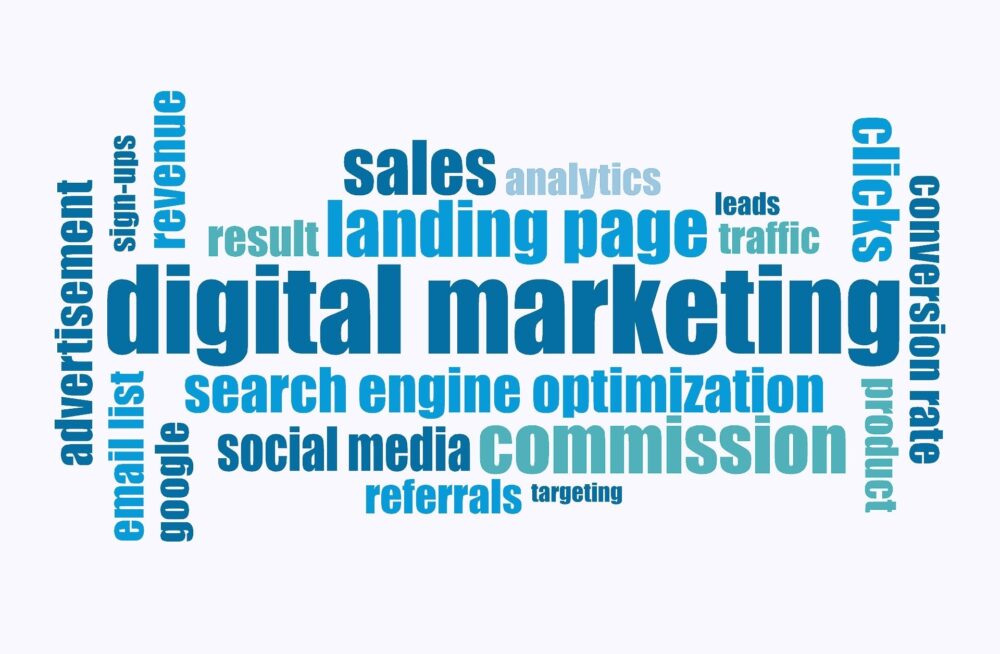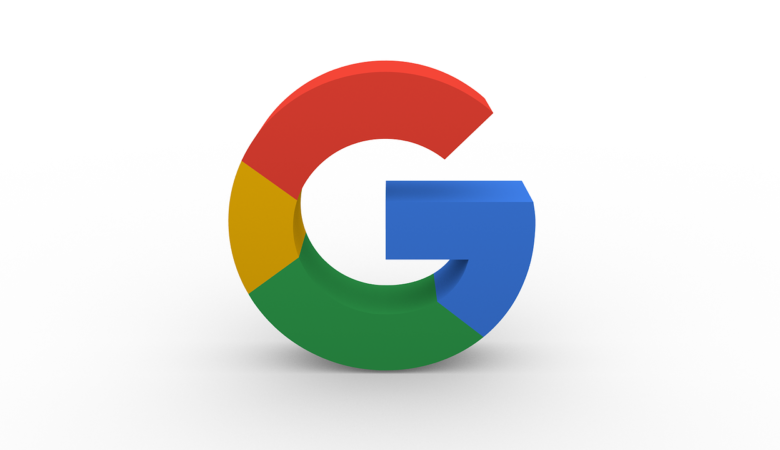What is Digital Marketing?
You may be hearing about Digital marketing a lot and how other businesses are making great profits utilizing it. However, there are business owners still not understanding what exactly it is? How to make use of it? Whether it actually is useful for their own business or not?
In this article we will try to answer all these questions.
Digital Marketing refers to using online platforms, technologies, and strategies to promote your products, services, or promote brands to a target audience. Unlike traditional marketing, it focuses on leveraging the internet and electronic devices to reach and engage customers, making it a cornerstone of modern business strategies.
Components of Digital Marketing
- Search Engine Optimization (SEO):
- Optimizing a website to rank higher in search engine results, increasing organic traffic.
- Content Marketing:
- Creating and distributing valuable content (blogs, videos, infographics) to attract and retain customers.
- Pay-Per-Click Advertising (PPC):
- Paid online ads where advertisers pay each time someone clicks on their ad (e.g., Google Ads).
- Social Media Marketing:
- Promoting a brand or product through platforms like Facebook, Instagram, LinkedIn, and Twitter. To build brand awareness and build or increase client base.
- Email Marketing:
- Sending targeted emails to nurture leads, engage customers, and drive conversions.
- Affiliate Marketing:
- Partnering with affiliates who promote your products in exchange for a commission on sales.
- Influencer Marketing:
- Collaborating with influencers to promote products or services to their followers.
- Mobile Marketing:
- Strategies aimed at engaging users on mobile devices through SMS, apps, or mobile-optimized ads.
- Web Analytics:
- Using tools like Google Analytics to track and measure campaign performance.
What business can use Digital Marketing?
1. E-Commerce Businesses
- Why: Digital marketing drives online traffic, boosts conversions, and fosters customer retention. And, since the e-commerce business in itself is on-line business, it needs to have marketing strategy to drive everything on-line.
- Key Strategies:
- SEO to rank product pages.
- Social media ads for product promotion.
- Email marketing for personalized offers.
2. Local Businesses (e.g., Restaurants, Salons, Repair Shops)
- Why: It helps attract local customers searching for services nearby.
- Key Strategies:
- Local SEO and Google My Business optimization.
- Social media marketing for community engagement.
- SMS and email marketing for promotions.
3. Professional Services (e.g., Consultants, Lawyers, Doctors)
- Why: Builds trust and establishes authority in a competitive market.
- Key Strategies:
- Content marketing to demonstrate expertise (e.g., blogs, videos).
- PPC ads targeting specific professional needs.
- LinkedIn marketing for B2B professionals.
4. Startups
- Why: Digital marketing allows cost-effective audience reach and brand building.
- Key Strategies:
- Social media marketing for brand awareness.
- Influencer marketing to tap into established audiences.
- PPC campaigns to generate quick leads.
5. Educational Institutions and Online Courses
- Why: It attracts students and promotes learning programs.
- Key Strategies:
- Content marketing (e.g., webinars, ebooks) to showcase expertise.
- Social media for targeting students and professionals.
- Email marketing for nurturing leads.
6. Real Estate
- Why: It helps in connecting with buyers and sellers and showcasing properties.
- Key Strategies:
- PPC campaigns for lead generation.
- Social media for showcasing properties with visuals.
- SEO to rank for local real estate queries.
7. B2B Companies
- Why: Digital marketing provides a platform for lead generation and relationship building.
- Key Strategies:
- LinkedIn for professional networking and lead generation.
- Email marketing for nurturing client relationships.
- Webinars and whitepapers for building authority.
8. Nonprofits and Charities
- Why: It helps in spreading awareness and driving donations.
- Key Strategies:
- Social media for advocacy and outreach.
- Email marketing to engage donors.
- PPC campaigns with grants like Google Ad Grants.
9. Travel and Hospitality
- Why: It targets customers looking for experiences and accommodations.
- Key Strategies:
- Social media for showcasing destinations and offers.
- SEO for ranking travel-related queries.
- Retargeting ads for website visitors.
10. Retail Stores (Brick-and-Mortar)
- Why: Digital marketing drives foot traffic and promotes offers.
- Key Strategies:
- Local SEO and location-based ads.
- Social media ads for sales promotions.
- Mobile marketing via SMS or app notifications.
11. Entertainment and Media
- Why: To build and engage an audience for content or events.
- Key Strategies:
- Social media for sharing and promoting content.
- Influencer collaborations.
- Video marketing on platforms like YouTube.
12. Healthcare Providers
- Why: It helps patients find services and builds trust in healthcare professionals.
- Key Strategies:
- SEO for local healthcare services.
- Content marketing to educate on health topics.
- PPC campaigns targeting specific health services.
Digital marketing isn’t limited to specific industries; its versatility makes it beneficial for any business looking to enhance its online presence, engage its audience, and achieve measurable results. Whether you’re a small local business or a global corporation, digital marketing can be tailored to meet your needs.
Is Digital Marketing for both Small and Large Businesses?
Indeed, digital marketing is highly beneficial for both small and large businesses, however the approache and strategy may vary based on the size, goals, and resources of the business. Here’s how digital marketing caters to both small and large businesses:
Benefits for Small Businesses
- Cost-Effective
- Digital marketing allows small businesses to compete with larger competitors on a smaller budget. Platforms like social media and email marketing are affordable yet effective.
- Targeted Advertising
- Tools like Google Ads and Facebook Ads enable precise audience targeting, ensuring the limited budget is spent effectively.
- Building Brand Awareness
- Small businesses can leverage content marketing, SEO, and social media to create a strong online presence without massive upfront investments.
- Flexibility and Speed
- Digital campaigns can be quickly launched, paused, or adjusted based on performance. This agility is ideal for small businesses with limited resources.
- Community Engagement
- Social media platforms help small businesses build relationships with local audiences, boosting trust and loyalty.
Benefits for Large Businesses
- Scalability
- Large businesses can run extensive campaigns across multiple channels, reaching global audiences.
- Advanced Analytics
- Larger organizations benefit from in-depth data analysis to refine campaigns and optimize ROI at scale.
- Brand Management
- Digital marketing helps maintain a consistent brand image across various platforms, reinforcing customer trust.
- Personalization at Scale
- Big businesses use advanced tools like AI and machine learning to deliver highly personalized content to millions of users.
- Comprehensive Strategies
- Large enterprises often combine digital efforts (SEO, PPC, social media, influencer marketing) with traditional marketing for a robust omnichannel approach.
Common Digital Marketing Tactics for Both
- Search Engine Optimization (SEO): Helps both small and large businesses improve visibility in search engine results.
- Pay-Per-Click (PPC): Both can leverage PPC for immediate traffic, though budgets and scale differ.
- Social Media Marketing: Great for building a community and engaging with customers, regardless of size.
- Content Marketing: Valuable for educating audiences and showcasing expertise.
- Email Marketing: Effective for nurturing leads and maintaining relationships with existing customers.
Key Differences in Approach
| Aspect | Small Businesses | Large Businesses |
|---|---|---|
| Budget | Smaller, focuses on cost-efficiency. | Larger, enabling broad and diverse campaigns. |
| Target Audience | Often niche or localized. | Broader, including international markets. |
| Tools Used | Basic tools (e.g., free or low-cost platforms). | Advanced tools (e.g., AI, automation software). |
| Campaign Scale | Limited to a few channels. | Extensive, across multiple platforms. |
| Team Size | Small in-house team or outsourced agency. | Larger in-house teams and dedicated agencies. |
Digital marketing is versatile and adapts to businesses of all sizes, helping them achieve their unique objectives.
How to choose a right Digital Marketing agency?
Choosing the right digital marketing agency is crucial for your business’s success. Here are key qualities to analyze before hiring one:
1. Expertise and Experience
- Portfolio: Review their past projects to ensure they have experience in your industry or with similar goals.
- Specialization: Determine if they specialize in areas like SEO, PPC, content marketing, social media, or overall digital strategy.
- Certifications: Look for certifications like Google Partner, Facebook Blueprint, or HubSpot certifications.
2. Reputation and Credibility
- Client Reviews and Testimonials: Check reviews on platforms like Google, Clutch, or Trustpilot.
- Case Studies: Request case studies that demonstrate measurable results for their clients.
- References: Ask for client references to get direct feedback.
3. Transparent Processes
- Clear Communication: They should explain their strategies and processes in simple terms.
- Performance Metrics: Ensure they use key performance indicators (KPIs) that align with your business goals.
- Reporting: They should provide regular reports on campaign performance.
4. Technical Competence
- SEO Knowledge: Strong understanding of technical SEO, content optimization, and keyword research.
- Analytics: Expertise in tools like Google Analytics, Search Console, and data visualization platforms.
- Ad Management: Proficiency in running PPC campaigns on platforms like Google Ads or Facebook Ads.
5. Creative Skills
- Content Creation: Ability to create engaging, high-quality content (blogs, videos, graphics).
- Branding: Strong design and branding capabilities that align with your business.
- Innovative Campaigns: Track record of executing out-of-the-box campaigns.
6. Customization and Flexibility
- Tailored Solutions: Avoid agencies that offer a one-size-fits-all package. They should provide solutions based on your specific needs.
- Adaptability: Ability to adjust strategies based on campaign performance and market trends.
7. Budget-Friendly Options
- Transparent Pricing: Get a detailed breakdown of costs. Avoid hidden fees.
- Return on Investment (ROI): Focus on value over cost; ensure they can demonstrate ROI.
8. Ethical Practices
- White-Hat Strategies: Ensure they use ethical practices, especially in SEO, to avoid penalties.
- Compliance: Familiarity with data privacy laws like GDPR, CCPA, or IAB TCF standards if relevant.
9. Communication and Collaboration
- Dedicated Point of Contact: A specific account manager for your project.
- Responsiveness: Quick responses to queries and clear communication channels.
- Collaborative Approach: Willingness to work with your in-house team and understand your business.
10. Proven Results
- Metrics-Focused: Check if they prioritize lead generation, sales, and other tangible results.
- Long-Term Success: Evidence of helping clients achieve sustainable growth.
By evaluating these qualities, you can ensure the agency you hire aligns with your goals and can deliver results.
One with most competitive pricing and data driven digital marketing agency – Digitals Daddy – Available on WhatsApp on +91 – 88005 93735
For Travel Lovers – These Winters Explore Majestic Rajasthan – 8 Must Visit Destinations







Leave a Reply